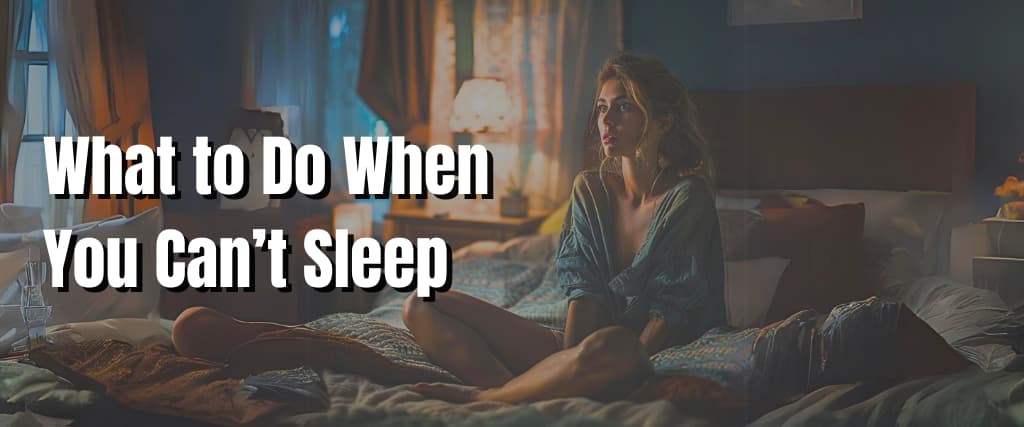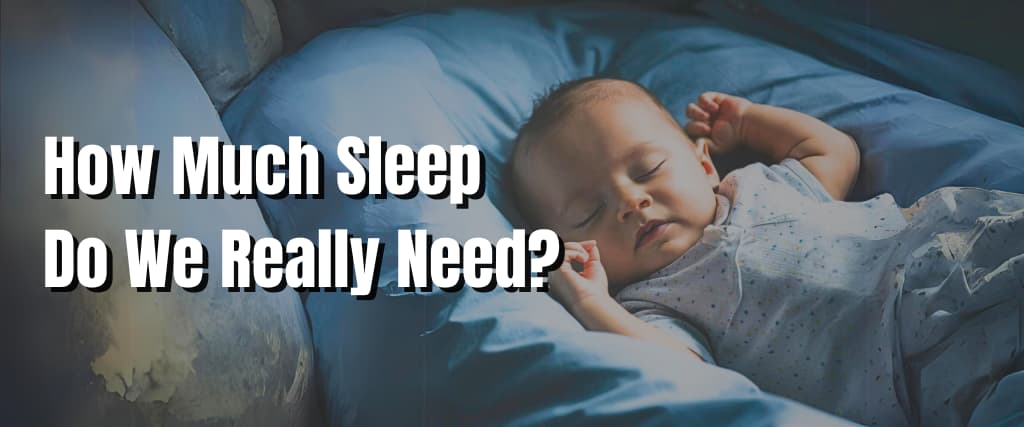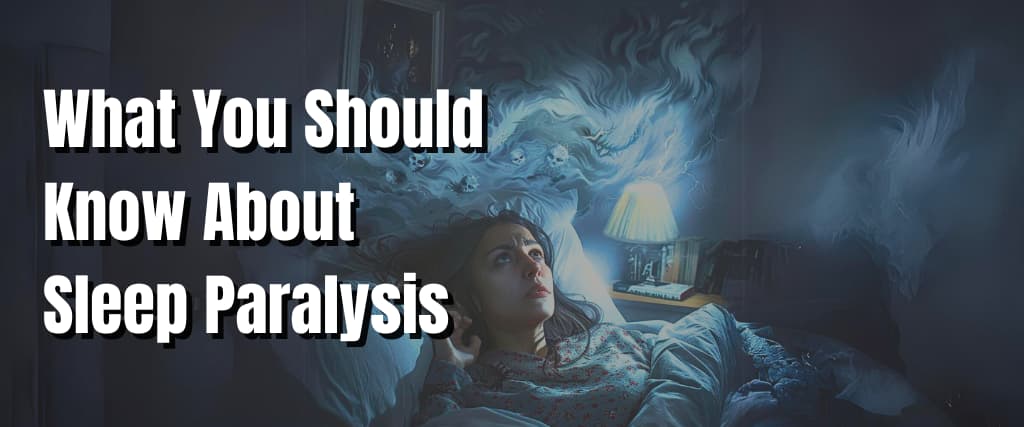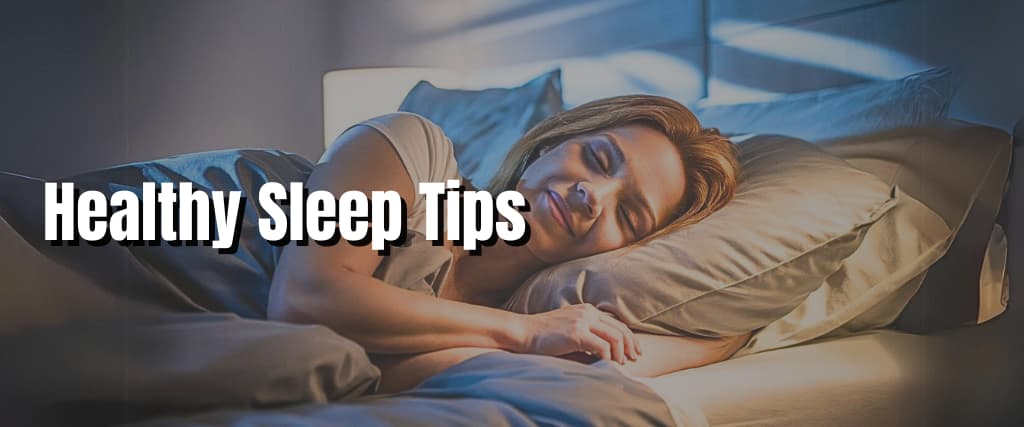At least every individual has had a zombie-like feeling after a night of little or no sleep. A night with inadequate rest can make you feel drowsy during the day with slowed thinking, irritable mood, and lack of energy.
Sleep deprivation is a condition when you don’t get enough sleep. In recent years sleep, deprivation has worsened, and it is estimated that it affects one-third of American adults.

Inadequate sleep hinders how we feel and think. Although the short-range effects are obvious, chronic sleep deprivation can increase the long-term risk of mental and physical health conditions.
To prevent suffering from this condition, it is vital to avoid sleep deprivation. To better ensure that you get enough sleep, you should understand this condition and know its symptoms, causes, diagnosis, and treatment.
What Is Sleep Deprivation?
Sleep deprivation involves getting less than the needed amount of sleep. Adults need 7-9 hours of sleep, whereas teens and children require more nightly sleep compared to adults.
Are All Definitions Of Sleep Deprivation Similar?

Sleep deprivation is defined based on duration in sleep medicine. Sleep duration is the amount of time a person spends asleep. Being well-rested is more than just how many hours you spend asleep. Because of this, the terms sleep insufficiency or sleep deficiency are commonly used to define the factors that diminish the quality and quantity of sleep and keeps an individual from waking up rested.
According to this sleep, deficiency has a broader application. For instance, an individual who sleeps for 8 hours but has numerous awakenings that fragment their sleep may have insufficient sleep though their sleep duration meets the recommended quantity.
Sleep deprivation can also refer to poor sleep overall, not just the sleep duration. In the medical field also, studies use different definitions to describe sleep deprivation. Some research classifies it as seven hours of sleep or less, while others remain firm at six hours.
Are There Different Forms Of Sleep Deprivation?
Categorization of sleep insufficiency and sleep deprivation depends on an individual’s circumstances.
Acute sleep deprivation: This is a short period, commonly a few days or less, when an individual has a significant reduction in their sleep time.

Chronic sleep deprivation: It is also referred to as insufficient sleep syndrome. The AASM defines it as curtailed sleep that continues for three months or more.
Chronic insufficient sleep or sleep deficiency: This is constant sleep deprivation and poor sleep which happens due to sleep fragmentation and other disturbances.
Is Sleep Deficiency Distinct From Insomnia?
Although sleep deprivation and insomnia involve inadequate sleep, experts in sleep science differentiate between the two. Individuals with insomnia experience difficulty sleeping even when they have adequate time to sleep. On the contrary, sleep-deprived folks don’t have adequate time allocated for sleep due to daily obligations or behavior choices.
For example, people who have insufficient sleep due to busy work schedules normally have no difficulty sleeping for an extended time on weekends when trying to “catch up” on sleep.
A person with insomnia still struggles sleeping despite having a chance to sleep.
There can be a significant connection between how sleep deprivation and insomnia are described. Still, as a patient, you need to be aware that a sleep specialist or a doctor might use a more precise definition.
What Causes Sleep Deprivation?
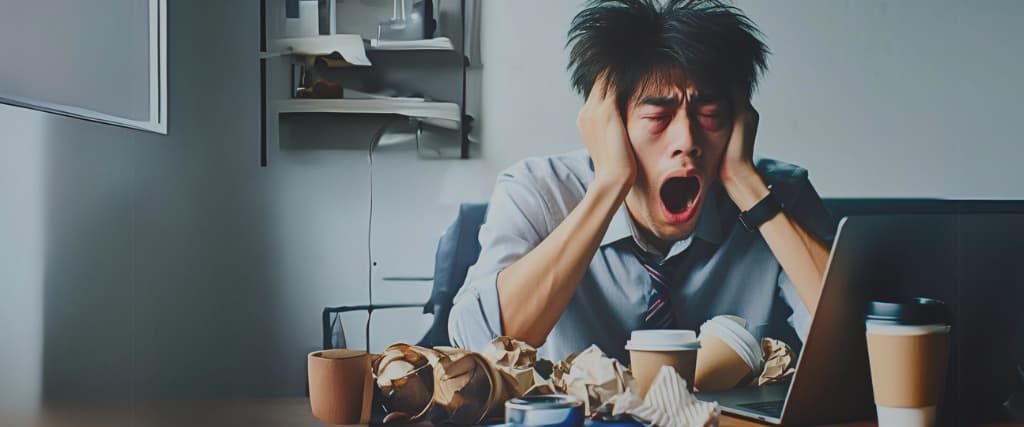
Several elements like lifestyle choices, poor sleep hygiene, medical conditions, sleep disorders, and work obligations can cause sleep deprivation.
Sleep deprivation is as a result of optional choices that reduce the available sleep time. For instance, a person can experience acute sleep deprivation if they stay up late to watch a TV series. This decision at the moment might seem unintentional, and it is aided by an inconsistent sleep schedule.
Work commitments are also another cause of sleep deprivation. For instance, people who engage in multiple jobs for more prolonged hours might not have adequate time for enough sleep. Laborers who work the whole night might also find it difficult to get enough sleep that they require.
Sleep disorders or medical conditions can also cause sleep deficiency. Disorders like sleep apnea, which brings dozens of night awakenings, might affect sleep quality and duration. In addition to this, other mental and medical health conditions such as general anxiety or pain can affect the quantity and quality of sleep.
What Are The Symptoms Of Sleep Deprivation?

The major indicators of sleep deficiency include extreme daytime sleepiness and daytime challenges like mood swings, slow thinking, and reduced concentration.
Among the assuring symptoms of sleep deprivation is feeling extremely sleepy during the day. Individuals with significant daytime sleepiness might feel sleepy and have a tough time remaining alert even when required. In other instances, this evolves to microsleeps in which an individual naps in a matter of minutes.
Inadequate sleep can affect how a person feels during waking hours. Some of these symptoms comprise:
- Reduced attention span
- Risky or poor decision making
- Worsened memory
- Lack of energy
- Slowed thinking
- Mood changes comprising stress, irritability, or anxiety
A person’s symptoms depend on the extent of their sleep deprivation and on whether it is chronic or acute. Studies also suggest that an individual might experience symptoms after lack of sleep, which might be tied to a person’s genetics. Furthermore, know how you feel after using stimulants like caffeine as they might hide signs of sleep deprivation.
What Are The Consequences Of Sleep Deprivation?

Sleep deprivation can have severe and extensive consequences
Acute sleep deprivation increases the risk of unintended accidents and mistakes. Drowsy driving and microsleeps are very risky. People with sleep deprivation are likely to experience difficulty in work and school settings or have mood changes that might shake personal relations.
On the contrary, chronic sleep deprivation can result in a great number of health conditions. Adequate sleep is key to the proper functioning of almost all systems of the body. Therefore consistent lack of sleep puts people at risk of mental and physical health:
- Mental health disorder: Mental health and sleep have a great connection, and inadequate sleep is connected with disorders such as anxiety, bipolar, and depression.
- Cardiovascular disease: Research shows a robust correlation between sleep deprivation and cardiovascular problems such as heart attack, high blood pressure, stroke, and coronary heart disease.
- Diabetes: Lack of adequate sleep affects the ability of the body to regulate blood sugar, raising the risk of illnesses like diabetes.
- Obesity: Studies indicate that people eat more carbohydrates and calories when they don’t get sufficient sleep. This is among the ways inadequate sleep is tied to obesity and conditions relating to proper body weight.
- Immunodeficiency: Lack of sufficient sleep results in worse immune function, for instance, poor response to vaccines.
- Hormonal abnormalities: Sleep aids the body in the production and regulation of various hormones, possibly improving the vulnerability to hormonal disorders in individuals with sleep deficiency.
- Pain: People who have insufficient sleep are at greater risk of having pain or feeling pain increasing. Pain may also lead to sleep interruptions generating an undesirable cycle of increasing pain and sleep.
Knowing these impacts of sleep deprivation, it is no surprise that research has established that insufficient sleep is linked to a lower quality of life and greater risk of death.
On the societal level, the effects of sleep deprivation are enormous. The CDC estimates that more than 6000 deaths each year are a result of drowsy driving. Apart from this, sleep deficiency is considered to incur hundreds of billions in healthcare-related costs together with over $400B in productivity losses every year in the United States only.
How Sleep Deprivation is Diagnosed
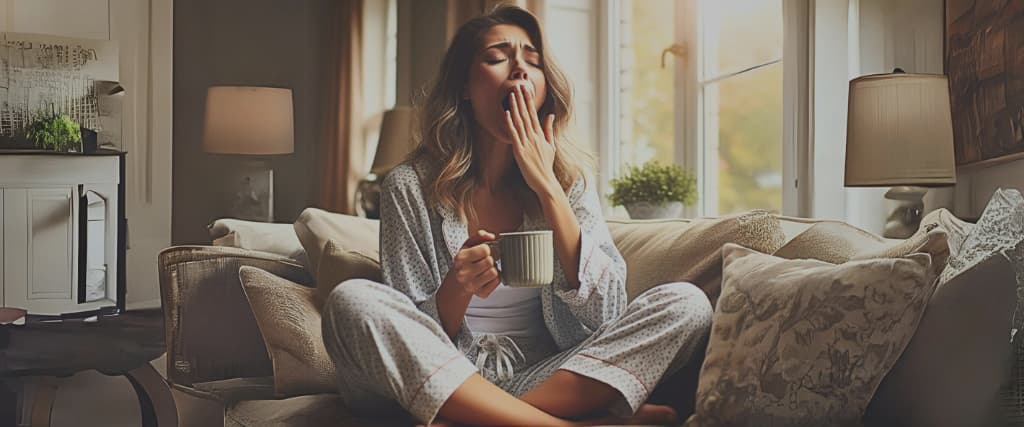
Sleep specialists normally make a diagnosis of sleep deprivation by discussing a patient’s sleep pattern and symptoms. This may include evaluating a sleep diary or answering a detailed questionnaire that offers insight into your daytime symptoms and sleeps patterns.
In other instances, further testing with sleep testing technology referred to as actigraphy or an overnight sleep study might be done if more information is required or if the sleep specialist thinks that the patient may be suffering from an underlying sleep disorder.
Ways of Preventing and Treating Sleep Deprivation

The best step to take towards getting relief is working with a doctor when you have an ongoing or worsening problem with inadequate sleep or daytime drowsiness. Your specialist can evaluate your condition and suggest the ideal treatment that suits your needs better.
The ideal method of preventing and treating sleep deprivation is focusing on your sleep hygiene, sleep environment, and daily habits. Here are the main hygiene improvements people suffering from inadequate sleep can embrace.
Address Sleep Deprivation, Don’t Cope With It
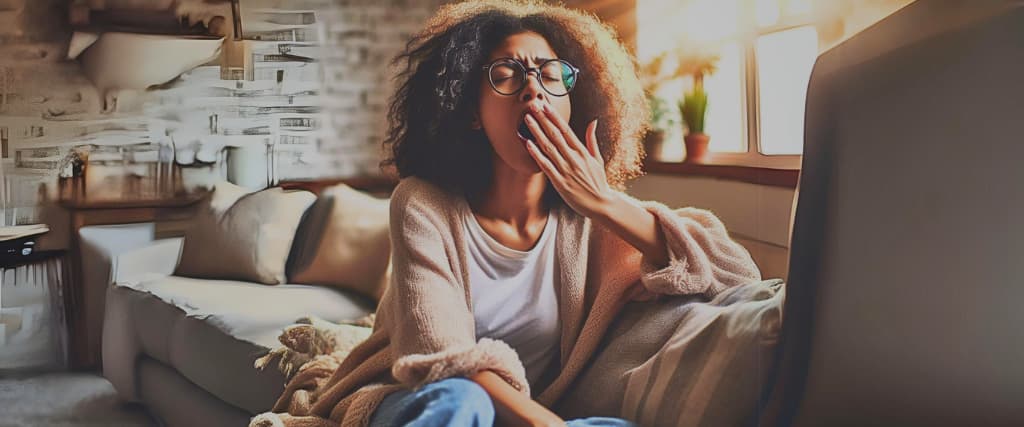
A greater percentage of people have insufficient sleep because they perceive sleep deprivation as common. Instead of taking the required steps to ensure they have adequate sleep, they drink energy drinks or caffeine, take naps or try to power through.
These are not sustainable approaches to sleep deprivation. They might help you get through the day, but unfortunately, the effects of sleep deprivation will still catch up in the short and long term.
Knowing this, it is vital not to accept a lack of sleep as usual; however, put much effort into sleeping more and getting quality sleep.
Make Sleep a Priority
Chronic insufficient sleep results from sacrificing sleep to create room for leisure activities, work, or other commitments. To avoid this, observe a few vital steps to ensure you make sleep a priority:
- Have a constant sleep routine: Make sure that you wake up and go to bed simultaneously each day. When scheduling your time, ensure that you allocate time to get adequate sleep. After coming up with a routine, adhere to it even on weekends. Sticking to your routine helps to prevent variations in your nighttime sleep.
- Set limits in your work and social life: It is easy to chip away your sleep time to cater to the demands of your professional or personal life. Setting limits is important as it helps you uphold the required time to rest every night.
- Create a bedtime routine: Before bedtime, prepare yourself each night with the same routine such as stretching, quietly reading, brushing your teeth, and putting on pajamas. A constant bedtime routine can help you be in the right frame of mind and sleep with ease every night.

Customize Your Bedroom Environment
Make your bedroom setting perfect for your relaxation. It would be impossible to avoid bed if your bedroom environment is inviting and addresses your comfort preferences.
The pillow and mattress ought to offer adequate support, and your bedding must make you feel comfy while retaining a reasonable temperature. In addition to this, ensure that your room is as dark and quiet as possible to reduce any sleep disruptions.
Avoid Things That Can Interfere With Sleep
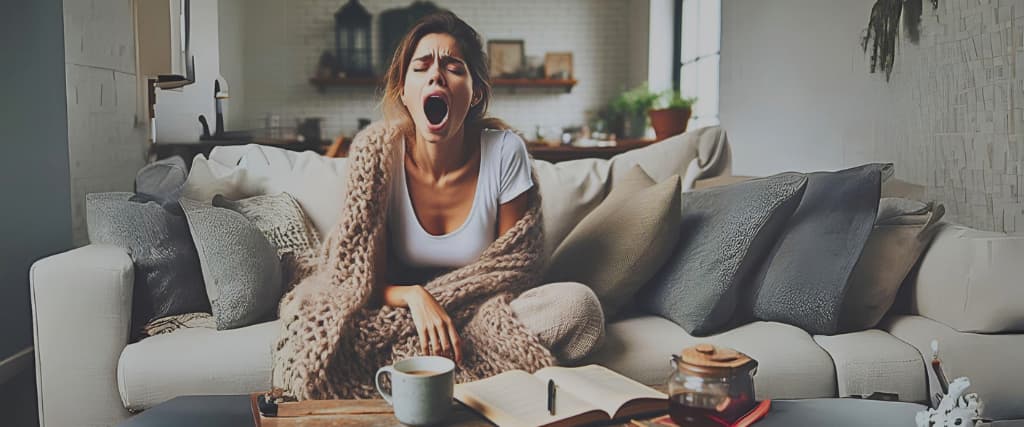
The best step to address sleep deprivation is keeping off things that can negatively interfere with your sleep.
- Electronic devices: Tablets, TVs, computers, and cell phones can keep your mind active, leaving you wired when it is time to sleep. Your circadian rhythm may also be interfered with by the light emitted by the devices. Therefore, the best cause of action is to avoid using electronic devices an hour leading to bedtime.
- Alcohol: Drinking at night can affect your regular sleep cycles by decreasing your general sleep consistency and quality.
- Caffeine: It is wise to avoid taking caffeine in the afternoon or the evening. This is because it is a stimulant and keeps you alert for several hours.
- Naps: Take short naps to keep them from interfering with your night sleep. Nap for about 30 minutes or less and avoid them in the late afternoon. Avoid naps totally if you have insomnia.
Make the Most of the Day
Regular sunlight exposure in the daytime supports a healthy circadian rhythm that allows you to be alert during the day and asleep at night. Furthermore, engage in regular physical activities each day as it aids in normal sleep schedules.



